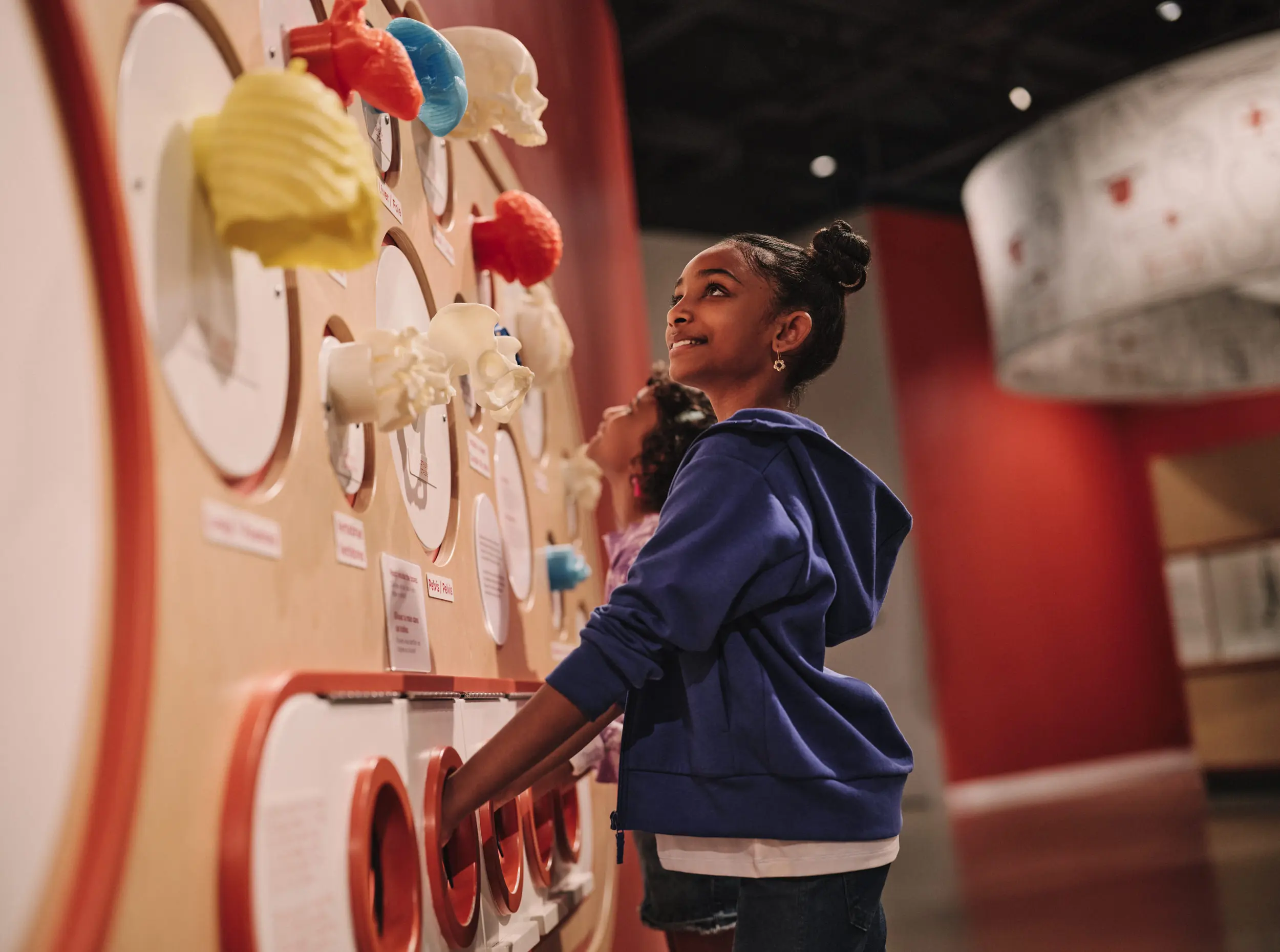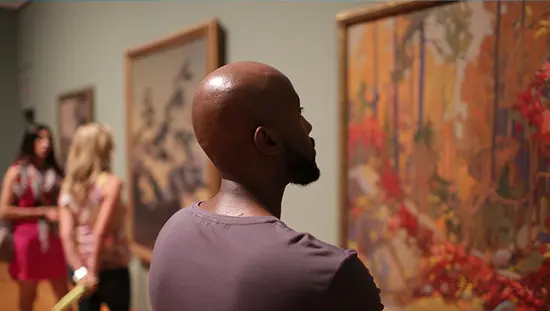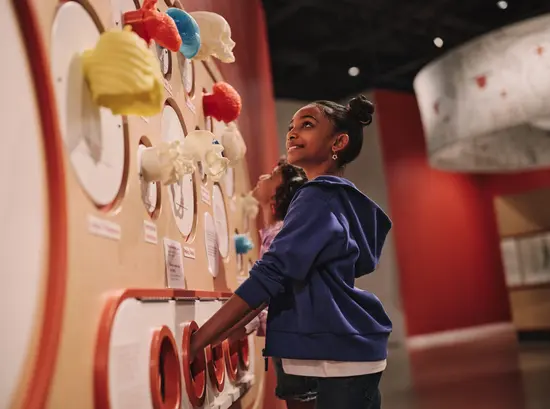Museum of Illusions
This Toronto attraction is one of several Museum of Illusions worldwide. It features over 70 art installations and optical illusion exhibits.
Illusions include familiar ones like the kaleidoscope to unique and mind-boggling ones like the Anti-Gravity Room. This marriage of art, science and entertainment will have the whole family chatting about the experience for hours.
Toronto | Museum of Illusions
How to get to Museum of Illusions
Location: 132 Front Street East, Toronto
By car: The Museum of Illusions is located in Old City, downtown Toronto. Limited parking is available at the Go Park Garage.
By transit: The Toronto Transit (TTC) provides direct streetcar service to the museum. It is located approximately a 15-minute walk away from Union Station.
Know before you go
The Museum of Illusions is open daily from 10:00 a.m. to 8:00 p.m. Purchase tickets online or at the entrance. Tickets are timed entry and allow for a 45-minute visit. There is no bag or coat check area.
Find the accessibility features for this attraction.
Things to do at Museum of Illusions
Discover more activities and experiences.
See mind-boggling illusions
Exhibits range from hands-on illusions in the Smart Playroom to puzzling installations like the Cloning Table and holograms that pop out of their frame.
Enjoy a themed visit
Watch for special events and seasonal additions like Halloween-themed activities.
Celebrate at the museum
From birthday parties to personalized experiences, host your next event at this one-of-a-kind venue.
Articles and itineraries
Get ideas and inspiration for your next trip.

Interesting facts about the Museum of Illusions
The Museum of Illusions founders, Roko Živković and Tomislav Pamuković aimed to offer visitors a mix of education and entertainment, which they dubbed “edutainment”, through interactive illusions.
The first museum was opened in Zagreb, Croatia, in 2015, and its popularity led to its rapid expansion around the globe. Currently, there are over 45 locations, including Toronto, New York, Dubai, Chicago, Athens, Paris and Istanbul.
The Museum of Illusions is the world's largest chain of private museums.
Accessibility features
Easy access electrical outlets
At least one electrical outlet is within easy reach and has clear floor space in front for charging an electric mobility device.
Ramps
An inclined plane that allows wheelchair users and others to access buildings and navigate between different levels.
Accessible washroom
At least one washroom stall larger than the others to accommodate adequate maneuvering space for mobility devices. They also include grab bars, transfer space, an accessible door latch, sink with knee clearance, and lever handles or automatic sensor faucets.
Universal washroom
A separate washroom that allows an individual in a wheelchair to use a self-contained washroom facility. They include grab bars, transfer space, an accessible door handle/lock, accessible sink with knee clearance, easy-to-use/automatic faucets, adult change table and emergency call systems. It is also universal, allowing people of any gender to use it comfortably, including with a support person if needed.
Service animals welcome
Can be identified by visual indicators (such as a vest or harness) or documentation from a regulated health professional confirming the animal is necessary due to a disability. In Ontario, service animals are allowed in all public spaces unless otherwise prohibited by law. A service animal is not a pet; it is trained to perform tasks to assist a person with a disability, such as guiding individuals with vision impairments, alerting to sounds for those with hearing impairments, assisting during seizures, retrieving items, or helping manage psychiatric and neurological disabilities. There are no restrictions on the type of animal used as a service animal in Ontario. If the animal is not easily identifiable, the person can provide documentation from a regulated health professional confirming the need for the service animal.
Support persons welcome
By law, you must allow a person with a disability to be accompanied by his or her support person while in the areas of your business that are open to the public. A support person is an individual hired or chosen by a person with a disability to provide services or assistance with communication, mobility, personal care, medical needs or with accessing goods, services or facilities. If you charge an admission fee at your business, you must let people know you charge an additional fee for a support person.
Emergency communication systems
Providing alerts and information in multiple formats including text-based alerts, audio messages and visual cues.
Last updated: December 29, 2025








